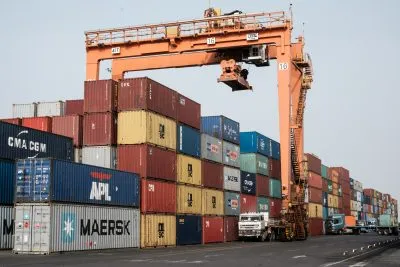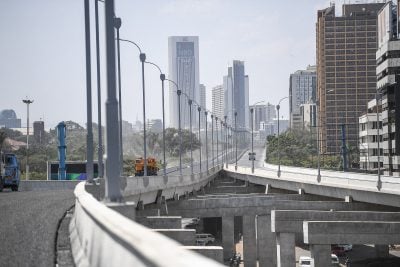How will Africa’s already beleaguered airlines adapt to the new economic realities of the post-Covid-19 world? Tom Collins investigates
In the recent history of aviation, only one event has changed the airline industry as much as Covid-19. After terrorists flew two hijacked aircraft into the World Trade Center, one into the Pentagon and one into a Pennsylvania field in 2001, security standards were irreversibly changed to meet the growing threat.
Prior to 9/11, boarding a plane had been relatively simple with few checks applied to passengers. While the pandemic shows no sign of abatinga fundamental shift is again on the horizon, this time relating to health and safety.
The question for African airlines is how these changes might affect the economic viability of already unprofitable carriers and how quickly they can adapt to the new world.
New measures
The good news for aviation executives is that recommendations to restart the industry from the United Nations’ International Civil Aviation Organization (ICAO) do not demand that airlines carry fewer passengers.
Most of the ICAO’s guidelines – which cover airports and aircraft – include relatively simple measures like personal protective equipment for staff, cleaning aircraft cabins, changing the boarding process, limiting access to toilets and minimising the interaction between staff and passengers. Advice around physical distancing on board remains vague, merely stating that airlines should assign seats for adequate physical distancing between passengers.
“We are not talking about billions of dollars being poured into R&D,” says Linden Burns, managing director of communications firm Plane Talking. “It’s the everyday practice of good hygiene. Wash your hands with sanitiser, encourage people who are not feeling well not to travel. They’ll be an initial period of inconvenience where we will get used to it, but pretty soon some of these things will become part of our daily routine.”
Though passengers may feel uncomfortable with a lack of social distancing, the loss of a middle seat has potentially ruinous effects on profitability, which has sparked industry lobbying for busier planes.
Aside from renovating airports with health infrastructure like handwash stations, the operational costs may not change significantly if the ICAO recommendations become the industry standard. However, complications may arise if health measures are not standardised and unified across all jurisdictions.
“One of the concerns voiced by the International Air Transport Association [IATA] is that after 9/11 there wasn’t one approach that could be applied worldwide,” says Burns.
“We had every local authority, every national authority and in some cases the airport on its own dreaming up their own safety measures and enforcing them. And 19 years later there is a complete patchwork of security measures.”
Ultimately, however, each administration will decide whether the ICAO recommendations should be adopted or not. If the rules are deemed insufficiently robust, or the resumption of flying leads to an uptick in cases, things may change.
A tougher line taken towards onboard social distancing or universal passenger testing by a significant destination country could change the calculation for global airlines. Guidelines from the European Union Safety Aviation Agency in May define physical distancing as 1.5m metres and urge physical distancing on planes where possible.
Travel bubbles
Confusion around new rules could present problems for African airlines that struggle to gain landing rights in many international destinations.
Though African operators can meet ICAO requirements, the possibility of unilateral restrictions could complicate their access to other jurisdictions. This also applies to the growing industry phenomenon of “travel bubbles” or “air corridors”, bilateral agreements that facilitate air travel between two countries that are beginning to take shape around the world.
For example, the UK and Portugal are expected to form one such agreement, allowing British holidaymakers to visit Portuguese beaches over the summer months. New Zealand and Australia, which are widely regarded to have successfully contained Covid-19, discussed a travel bubble in the early stages of the pandemic but it has yet to formally materialise.
The worry is that foreign regulators will be slow to prioritise bilateral agreements with African countries and that pervasive stereotypes – or a lack of confidence in the governments’ testing ability or healthcare response – will deter policymakers from allowing citizens to visit the continent. This could have a devastating impact on countries which rely on tourism as a key source of foreign exchange, reinforcing the need for African governments to bring the virus under control.
Even if flights are allowed to resume, passengers will have to trust in a country’s response before they board. After declaring that Tanzania was virus-free despite credible reports to the contrary, President John Magufuli opened his country’s airspace to international flights. But amid reports of thousands of undiagnosed cases, very few tourists have decided to visit. Without a significant uptick, Air Tanzania, which has been undergoing a revival since Magufuli came to power in 2015, faces a bleak future.
“Even if individual governments lift travel restrictions, that doesn’t mean that the appetite or the regulation on the other side will catch up,” says Indigo Ellis, head of Africa at Verisk Maplecroft, a risk consultancy.
Regional travel first
As long-haul travel bears the brunt of the pandemic, regional operators that are less exposed to the international market could bounce back quicker than larger counterparts.
An example of an airline which could be less severely affected by the pandemic is Uganda Airlines (UA). UA has only been operational in its present form since last October when it completed delivery of four short-haul Bombardier CRJ900ERs.
In January 2020, it operated flights to six countries throughout the East Africa region but soon grounded its fleet following the onset of Covid-19. The lack of market exposure means that UA has lost less in revenue and must pay fewer overheads to maintain its newly-bought aircraft.
The government also completed its capital allocation for the airline before the pandemic, meaning that its finances are relatively stable.
“The fact that we have stopped flying means we haven’t spent the capital we have received for this year, so it has been pushed forward,” says Cornwell Muleya, the airline’s CEO. “In the short term, from a liquidity point of view, we don’t need a bailout. The capitalisation should be sufficient.”
While some airlines are scaling back orders, the delivery of two Airbus A330-800neos is scheduled for the end of the year, he confirms.
Rather than use these long-haul aircraft for lucrative flights to London, Dubai and China – as was the intention – the CEO will likely redirect the airplanes to West Africa and Southern Africa, where he sees greater demand in the medium term. The company will need to return to the air as soon as possible to justify the recent outlay on new planes.
Consolidation
Given the challenges, consolidation within the African market offers a potential way forward for domestic carriers. Merged entities could be able to clinch market share from foreign competitors like Emirates and Turkish Airlines which are also under financial duress.
Yet this will require greater regional cooperation from African airlines and authorities, and Covid-19 has temporarily halted efforts towards a liberalised airspace enshrined in the African Union’s Single African Air Transport Market (SAATM).
Nevertheless, analysts say that foreign carriers remain bullish about the African market, and M&A activity will continue following the purchase of a 49% stake in RwandAir by Qatar Airways in February 2020. The pandemic may offer the chance for well-capitalised airlines to snap up struggling rivals.
“Africa has most of the fastest growing economies in the world, it is a huge untapped market,” says Chiedza Madzima, head of operational risk at Fitch Solutions, a credit intelligence firm. “I think the story is compelling enough and those airlines that are big enough will continue to invest in Africa.”
Related articles
African airlines face mass bankruptcies without government assistance
Ethiopian Airlines moves from passengers to cargo as pandemic bites
Want to continue reading? Subscribe today.
You've read all your free articles for this month! Subscribe now to enjoy full access to our content.
Digital Monthly
£8.00 / month
Receive full unlimited access to our articles, opinions, podcasts and more.
Digital Yearly
£70.00 / year
Our best value offer - save £26 and gain access to all of our digital content for an entire year!
 Sign in with Google
Sign in with Google 



